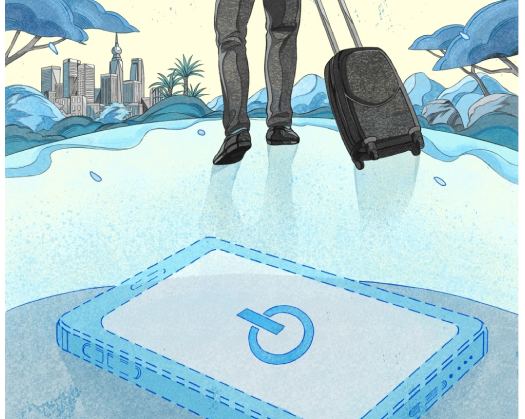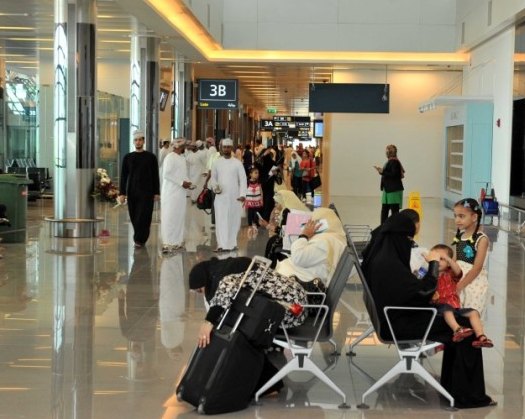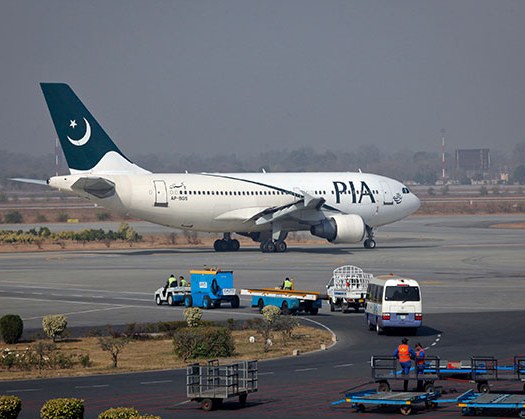In today's hyperconnected society, traveling without a phone appears impossible, or at least pointless.
However, for those who have completed it, the experience can be both gratifying and refreshing.
Soraya Lemboumba, 40, a project manager from Switzerland, went to Panama for ten days in January on a phone-free vacation. "It was life-changing," she said.
She claimed that she awoke to the sounds of nature rather than an alarm and did not spend her time writing captions for social media in her head or using her phone to fill the silence. "I spent days engrossed in pure presence," she told me.
Have you considered disconnecting on your next trip? Here are some first steps.
Decide on your rules.
Before departing for the airport, determine if you want to carry a laptop, tablet, or nothing at all. A laptop performs all of the features of your smartphone, but you are less likely to take it to the supper table or the beach.
Then, if you're bringing a gadget, create a set of guidelines to manage your technology usage during your trip. For example:
— I will not use any technology for leisure throughout this trip.
— If I can't hail a cab, I'll use my laptop to Uber.
— I will only use my tablet for one hour per day to research activities and lodging.
A physical list codifies a system and reduces temptation when those tired, anxious moments arise during travel, tempting you to reach for your phone.
Throughout your trip, you can adjust the regulations if you believe they are not working.
Downloading app blocker extensions such as Freedom, ScreenZen, and Opal allows you to restrict apps or websites such as YouTube, Instagram, and X for specified amounts of time. Temporary removal of apps is another excellent approach to avoid mindlessly scrolling.
Navigating the airport.
The majority of concern during phoneless travel revolves around practical concerns, such as what will happen at the airport or train station, which has schedules and potential delays and cancellations. As a general guideline, provide plenty of time for transit—at least an hour extra to account for scheduling errors or diversions.
If you don't have a phone to view etickets, you'll have to use paper boarding passes. Most airlines will print them out for free at the kiosks. However, be aware that certain airlines, such as Frontier, impose a $25 fee each person each direction to print boarding passes. Avoid this cost by printing your tickets ahead of time.
If you don't have an airline app, you'll have to remember to watch the airport displays for delays and gate changes, and feel free to ask gate attendants and airline personnel for assistance or instructions.
Catherine Price, the author of How to Break Up With Your Phone, reminds us that digital travel is not always appealing. "People forget that you can rely on paper," Price argues, "and the sensation of freedom outweighs any minor inconvenience. "
Getting Your Bearings
When you check into your hotel, greet the front desk and concierge by their first names — a scientifically proven method to gain favor, which might be useful if you need directions printed or cabs hailed throughout your stay.
To orient yourself surrounding your hotel or other accommodations, walk in ever-larger concentric circles outward. Use physical maps and anticipate mistakes. The charm of phone-free travel resides in the hiccups, as incorrect turns often lead to wonderful experiences. You'll find that you learn a city quicker if you use your instincts rather than GPS, which is a thrilling discovery.
In case you get lost, write down the complete address of your lodging and store it safely in your wallet. Worst case scenario, present it to a cab driver or a native. Instead of a translation app, get a phrasebook to carry with you (Lonely Planet's costs about $12 in several languages).
If you have a conversationalist mentality, your journey will flourish in unique and unexpected ways. If you come across a QR code for, for example, museum admission, simply explain your position to the individual behind you and request to tag along, providing them with money for the ticket. This is how you may unexpectedly make friends and experience the serendipity of travel.
Taking photos without a phone.
Purchase a disposable or digital camera for $50 and practice the philosophy of intention: take one shot of something you want to remember, then store your camera.
"Every time you shoot a photo on vacation, you remove yourself from the moment," Price explained. "You become too focused with images, particularly if you're taking them to upload on social media for others to see. Do not perform your vacation; instead, live it.
Writing in a notebook at the end of the day might help you remember the experiences you had. Instead of looking through photographs on your phone, you can read about your trip and relive those wonderful memories in a more detailed way.
Lemboumba internalized memories by taking "mental snapshots," which involved deliberately soaking in experiences as they happened. "The moments I didn't photograph, oddly, are the ones I remember the clearest," she remarked.
Handling emergencies
Many individuals avoid phone-free travel because they fear an emergency, but real emergencies are uncommon. The emergencies you're likely to encounter are functional, such as missing a train. These may appear devastating at the time, but with the appropriate attitude, they are nothing more than speed bumps.
Since you will not have access to Apple Pay or other services, in addition to a credit card, bring $200 to $300 in local cash in a secure travel bag that straps around your body. (Cash is useful for getting yourself out of difficult situations. ) For female solo travelers who are concerned about traveling without a phone, purchase a prepaid burner phone for $40 and keep it at the bottom of your luggage. You can always borrow a phone in an emergency, and you should notify loved ones of your route in advance.
If phoneless solo travel seems too difficult, consider joining a group. Grace Borges, a 35-year-old research analyst from Washington, last year took a five-day phoneless trip to Cuba with FTLO Travel, which specializes in group travel for young professionals. The tour guide handled administration, and since everyone was in a group, "sticking to the phoneless ethic was simpler since everyone was in the same boat," she explained.
Remember that everyone traveled in this manner only a few decades ago.













